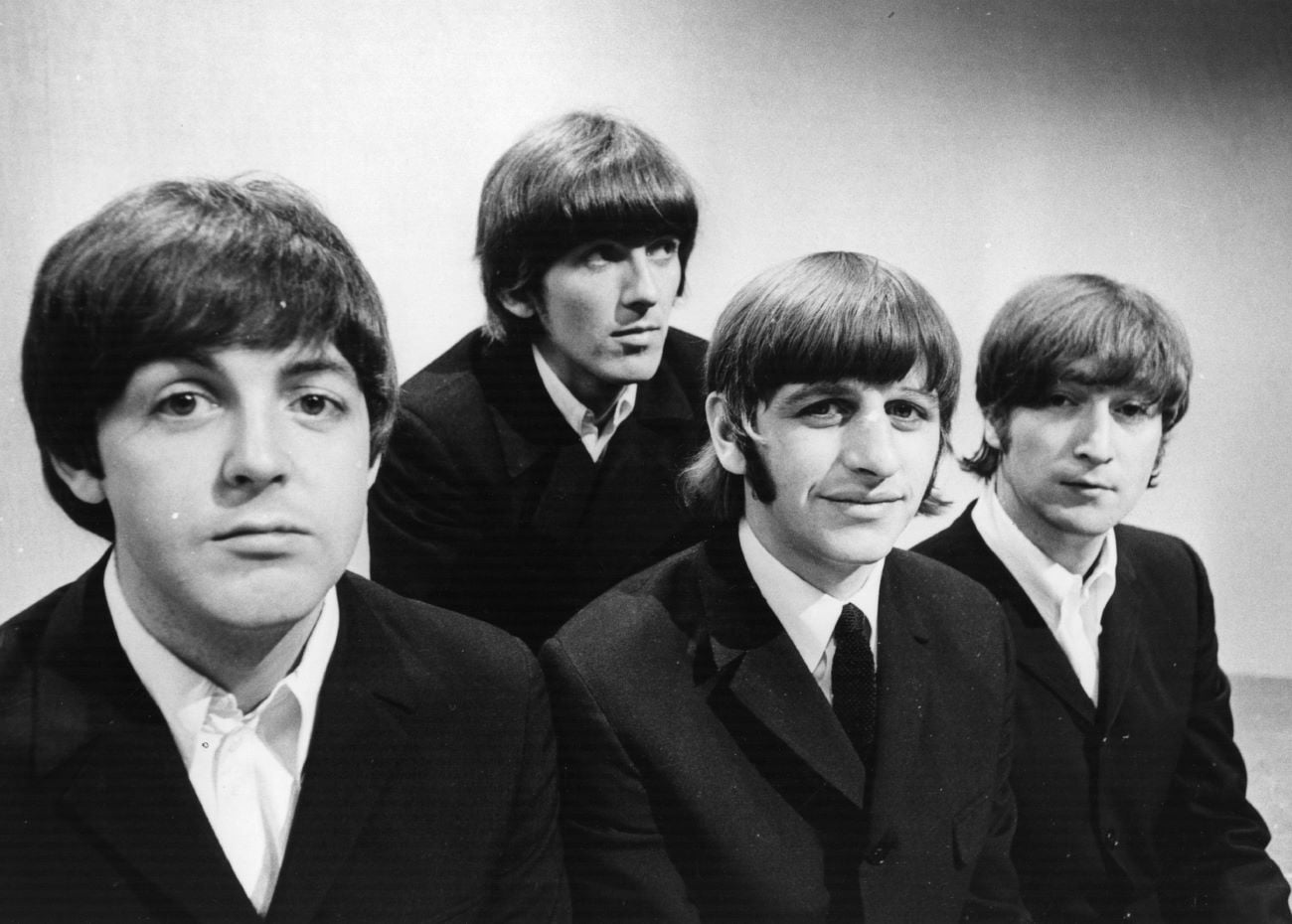
Paul McCartney Said He Politicized The Beatles, Not John Lennon
John Lennon’s antiwar activism in his solo career caused people to see him as the most political member of The Beatles, but Paul McCartney said this was not the case. While Lennon might have been the most outspoken about politics in his solo career, McCartney claimed that he was the one to introduce political messages to the band. He explained that he felt more politically motivated after a conversation with Bertrand Russell.

Paul McCartney said he brought political messaging to The Beatles
The Vietnam War raged as The Beatles rose to success, but McCartney said they didn’t pay much attention to it. This changed after he met with Russell.
“Just when we were getting to be well-known someone said to me, ‘Bertrand Russell is living not far from here in Chelsea why don’t you go and see him?’ and so I just took a taxi down there and knocked on the door,” McCartney told Prospect Magazine in 2009. “There was an American guy who was helping him and he came to the door and I said, ‘I’d like to meet Mr Russell, if possible.’ I waited a little and then met the great man and he was fabulous. He told me about the Vietnam War — most of us didn’t know about it, it wasn’t yet in the papers — and also that it was a very bad war.”
McCartney said that he left the meeting with Russell and spoke to his bandmates about what he learned.
“I remember going back to the studio either that evening or the next day and telling the guys, particularly John [Lennon], about this meeting and saying what a bad war this was,” he said. “We started to investigate and American pals who were visiting London would be talking about being drafted. Then we went to America, and I remember our publicist — he was a fat, cigar-chomping guy, saying, ‘Whatever you do, don’t talk about Vietnam.’ Of course, that was the wrong thing to say to us. You don’t tell rebellious young men not to say something. So of course we talked about it the whole time and said it was a very bad war.”
John Lennon became seen as a political figure in his solo career
Lennon and Yoko Ono spent their honeymoon hosting bed-ins for peace, and he wrote political music. His outspokenness about politics led to his image as the political Beatle, but Lennon actually tried to step away from this characterization. He believed his music was too political and was, as a result, ruining his career.
“Whether it’s a religious hat or a political hat or a no-political hat: whatever hat it was, always looking for these straw hats,” he told Rolling Stone in 1975. “I think I found out it’s a waste of time. There is no hat to wear. Just keep moving around and changing clothes is the best. That’s all that goes on: change.”
Paul McCartney became politically involved while in The Beatles
Lennon wrote songs like “Imagine,” “Give Peace a Chance,” and “Power to the People” without The Beatles. While his song “Revolution” might be The Beatles’ most political song, he didn’t stand out as much as a political figure while he was with the band. Lennon, McCartney, and George Harrison each wrote political music, with Harrison’s “Taxman” being the band’s first political song.
McCartney said he included political messaging in more songs than people might expect because he used metaphors. “Blackbird,” for example, was about civil rights.
“If I consciously am outraged by something in politics, or just in the world, some of the terrible things you hear about, it’s not that easy for me to just sit down and write something about Yemen, or something,” he told Apple Music. “Even though I’m outraged by the situation there, it’s not easy for me. But it is easier for me to write a veiled version of it.”
While the public may not ever view McCartney as a political songwriter, he wasn’t an apolitical outlier in the band. He wrote some political music, even if it wasn’t the band’s primary focus. Many of their political songs, in their time with the band and after, had to do with the Vietnam War. Therefore, McCartney significantly impacted the group through his conversation with Russell.


